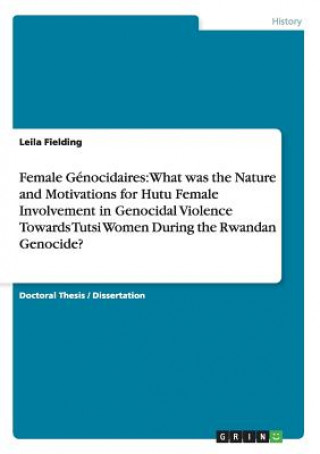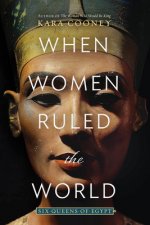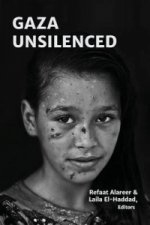
Kód: 01682400
Female Genocidaires
Autor Leila Fielding
Doctoral Thesis / Dissertation from the year 2012 in the subject History - Africa, grade: First, Manchester Metropolitan University Business School, language: English, abstract: Victimisation of women in times of war, genocide or ... celý popis
- Jazyk:
 Angličtina
Angličtina - Vazba: Brožovaná
- Počet stran: 62
Nakladatelství: Grin Publishing, 2012
- Více informací o knize

Mohlo by se vám také líbit
-

On the Art of Singing
1464 Kč -

Planning and Installing Micro-Hydro Systems
7286 Kč -

Dark Fiction
472 Kč -

ReAwakening of Art
690 Kč -

Real Boys Workbook: The Definitive Guide to Understanding and Interacting with Boys of All Ages
525 Kč -

Ethiopia in Depth - A Peace Corps Publication
390 Kč -

In Another World With My Smartphone: Volume 1
318 Kč
Darujte tuto knihu ještě dnes
- Objednejte knihu a zvolte Zaslat jako dárek.
- Obratem obdržíte darovací poukaz na knihu, který můžete ihned předat obdarovanému.
- Knihu zašleme na adresu obdarovaného, o nic se nestaráte.
Více informací o knize Female Genocidaires
Nákupem získáte 135 bodů
 Anotace knihy
Anotace knihy
Doctoral Thesis / Dissertation from the year 2012 in the subject History - Africa, grade: First, Manchester Metropolitan University Business School, language: English, abstract: Victimisation of women in times of war, genocide or mass slaughter has been the primary focus of the majority of explorations concerning gender and conflict. Traditionally, women are espoused as victims, at the mercy of male killers and therefore subordinate. The notoriety of brutal, horrific and incomprehensible sexual crimes against women in times of genocide has ensured that reluctance in addressing female accountability has plagued this debate. While examinations of these atrocities are imperative and indispensable in facilitating reconciliation, both psychological and social, this one-sided representation has led to a misunderstanding of the dynamic roles which women play during genocide. Whether supportive, active or auxiliary roles, women have been a vital component in endorsing and sanctioning genocidal violence historically. In Rwanda, some women not only provided assistance and encouragement to Hutu men, but also perpetrated the attacks and incited rape. The suffering of female victims cannot be fully understood without a consideration of the extensive nature of the perpetrators, both male and female. Moreover, quite the opposite of diminishing the value and significance of the victimisation of women, any examination which focuses on female agency re-balances the scales of gender inequality and consequently serves to empower women. Women should not be portrayed solely as victims. Women in the Rwandan genocide were victims and perpetrators, agents and symbols. Gender expectations which propagate the superiority of men both during and after conflict are detrimental to the reconstruction of post-genocide gender identities.
 Parametry knihy
Parametry knihy
Zařazení knihy Knihy v angličtině Humanities History
1349 Kč
- Plný název: Female Genocidaires
- Podnázev: What was the Nature and Motivations for Hutu Female Involvement in Genocidal Violence Towards Tutsi Women During the Rwandan Genocide?
- Autor: Leila Fielding
- Jazyk:
 Angličtina
Angličtina - Vazba: Brožovaná
- Počet stran: 62
- EAN: 9783656324409
- ISBN: 3656324409
- ID: 01682400
- Nakladatelství: Grin Publishing
- Hmotnost: 91 g
- Rozměry: 210 × 148 × 4 mm
- Datum vydání: 04. December 2012
Oblíbené z jiného soudku
-

God's Playground
1132 Kč -

Iron Kingdom
542 Kč -

Sword and Scimitar
592 Kč -

When Women Ruled the World
557 Kč -

The Lessons of History
276 Kč -

Killers of the Flower Moon
268 Kč -

Landmark Julius Caesar
706 Kč -

Under the Black Flag
421 Kč -

God's Playground
1174 Kč -

Empires of the Silk Road
493 Kč -

Access to History for the IB Diploma: Authoritarian states Second Edition
926 Kč -

God's War
597 Kč -

Energy
600 Kč -

Armies of the Macedonian and Punic Wars
1272 Kč -

Archaeology of Weapons
361 Kč -

Grand Strategy of the Byzantine Empire
827 Kč -

Armies of Feudal Europe 1066-1300
1083 Kč -

Encyclopedia of Japanese Swords
2001 Kč -

Wake Up
276 Kč -

Lies My Teacher Told Me
386 Kč -

Conquering Tide - War in the Pacific Islands, 1942-1944
714 Kč -

Vienna 1683
560 Kč -

History of Leo the Deacon - Byzantine Military Expansion in the Tenth Century
720 Kč -

Civilian Warriors
380 Kč -

We Have Never Been Modern
887 Kč -

Lives of the Cambro British saints, of the fifth and immediate succeeding centuries, from ancient Welsh & Latin mss. in the British Museum and elsewhe
740 Kč -

AN ESSAY ON CRITICISM. WITH NOTES BY MR.
527 Kč -

Europe Knows Nothing about the Orient - A Critical Discourse (1872-1932)
585 Kč -

Shapeshifters
490 Kč -

Gaza Unsilenced
516 Kč -

Etiquette for Every Day
1125 Kč -

SECRET MEMOIRS OF THE COURT OF LOUIS XIV
1124 Kč -

Killing of Major Denis Mahon
414 Kč -

Care of Books - An Essay on the Development of Libraries and Their Fittings, from the Earliest Times to the End of the Eighteenth Century. Fully Illus
810 Kč -

Compendiun on the Soul
473 Kč -

Memoirs of the House of Orleans
1096 Kč -

Gaza
852 Kč -

Witch
415 Kč -

Battle Cry of Freedom
570 Kč -

Army of None
394 Kč -

When Women Ruled the World: Six Queens of Egypt
437 Kč -

National Geographic The Old West
956 Kč -

Pax Romana
410 Kč -

Lays of Ancient Rome
278 Kč -

Kingdom in the Sun, 1130-1194
357 Kč -

Falsification of History: Our Distorted Reality
826 Kč -

Encyclopedia of Japanese Swords (Paperback)
1302 Kč -

Normans in the South, 1016-1130
357 Kč -

Tudor Fashion
883 Kč
Osobní odběr Praha, Brno a 12903 dalších
Copyright ©2008-24 nejlevnejsi-knihy.cz Všechna práva vyhrazenaSoukromíCookies



 Vrácení do měsíce
Vrácení do měsíce 571 999 099 (8-15.30h)
571 999 099 (8-15.30h)